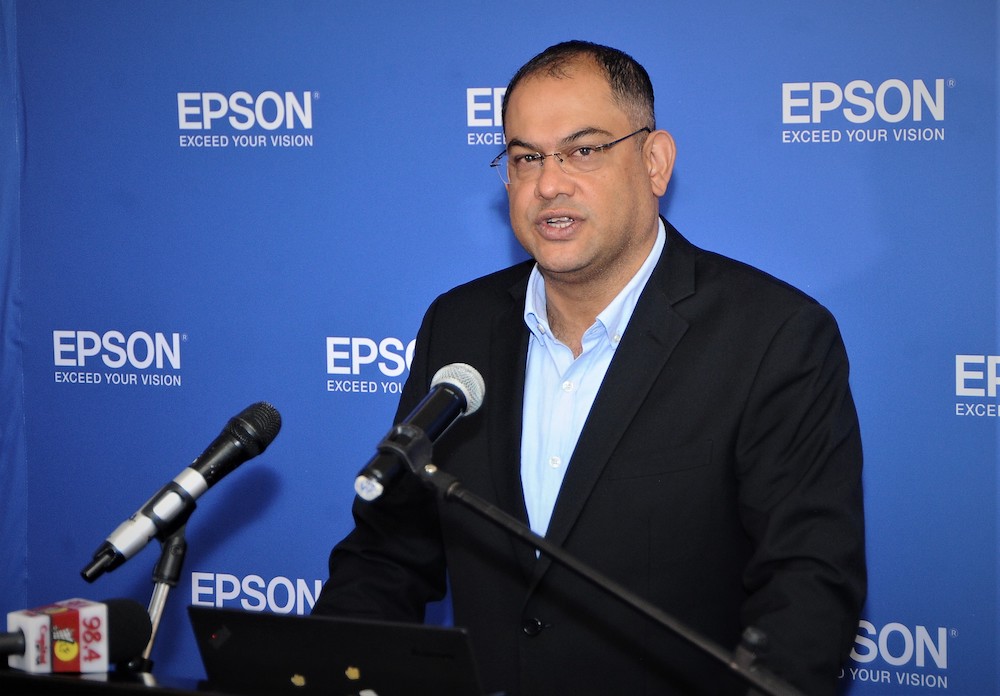Epson is killing Laser Printers in Favour of Inkjet Printing

Epson has announced that it’s ending sales of laser printers citing the technology’s limited ability to make meaningful sustainability advances.
The technology company announced on Thursday that Epson it’s now committed fully to inkjet printing, launching a new range of 40-60ppm business models to close the range gap and deliver a total suite of sustainable Heat-Free business inkjet MFPs
Explaining the decision, Epson’s Regional Head for East and West Africa, Mukesh Bector, cites the greater potential of inkjet to make meaningful advances in sustainability.
“This is due to the way the different technologies work – with laser requiring heat to fuse toner to a page where inkjet is a cold technology needing less energy to operate, said Mr. Bector.
He noted with organizations continuing to reinvent themselves, anticipating and fulfilling unmet social and environmental needs has become a collective priority.
“The decision to leave the laser market has been inevitable. As a company we’ve committed to sustainable innovation and action, and laser printers don’t fit within that. They consume more energy than business inkjets and use more consumable parts reiterated Epson EMEA’s Senior Vice President Rob Clark.
“Our printing business will instead focus 100% on piezo Heat-Free inkjet, leveraging our propriety technology to deliver efficient, sustainable print solutions for our partners and end users.”
The business inkjet market is forecast to grow; to the detriment of laser. According to IDC data, the business inkjet market in Western Europe is expected to grow at +5.1% per annum, contrasting with a -0.4% year-on-year decline in demand for laser printing, with growth in business inkjet showing similar trends for CEE and MEA. IDC research also suggests that 88% of hardware decision makers now consider energy consumption and waste (87%) to be ‘extremely’ or’ very’ important when selecting new printing devices.
“Climate change continues to be the world’s most urgent challenge, and the demand for products and services that use less resources and work more efficiently is rising. We have responded by implementing changes to improve the value and sustainability of our printers, while reducing the impact of our products by 50% across their lifecycle while extending their service life,” noted Mr. Bector.
The new Epson Enterprise range is a result of continuous Research and Development towards designing sustainable and innovative products that fit into our customer’s lifestyle and friend to the environment. Each day, Epson invests about €1.14 million [KES 139 million] into Research and Development, as a reflection of how important innovation is for the company.
To support Epson sustainability goals, the company is investing more than €770 million [KES 94 billion] in sustainable innovation and developing new technology to reduce environmental impact.
Leveraging Epson’s piezo Heat-Free line-head technology, the new WorkForce Enterprise AM-Series completes Epson’s business print portfolio. The new range provides print speeds of 40-60ppm, addressing the middle market and complementing the rest of the Epson business inkjet line-up.
With a compact footprint and lightweight design, the products help limit resources used during production and shipping. High yield ink cartridges also reduce material usage, shipping, storage and end of use management of consumables, as well as reducing downtime for routine maintenance.
“These new products complete our business inkjet MFP line up, from small work-group units to high-speed departmental machines, meaning that no matter the business function or print demand, we have a product to suit.
Each product that we offer in our business inkjet range provides businesses with the technology they need to help meet their own sustainability goals. We’re passionate and proud to produce sustainable technology for our partners and customers that really makes a difference in reducing power consumption and CO2 emissions. Every business that switches to inkjet technology contributes to a more sustainable society,” noted Mr. Bector.
Follow us on Telegram, Twitter, and Facebook, or subscribe to our weekly newsletter to ensure you don’t miss out on any future updates. Send tips to info@techtrendske.co.ke


